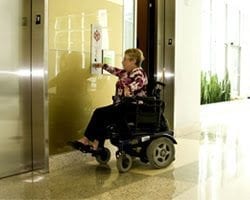Study Shines Light on Pain and Discomfort facing Wheelchair Users
New research by the Toyota Mobility Foundation has revealed interesting insights into some of the problems and experiences faced by wheelchair users, including almost nine in 10 stating they had experienced pain or discomfort due to their mobility devices.
The polling, commissioned by the Toyota Mobility Foundation and carried out by ComRes, was undertaken to help designers and innovators taking part in the three-year Mobility Unlimited Challenge gather a better understanding of the lives of the end-users around the world that they are creating solutions for.
ComRes surveyed 575 wheelchair users across the UK, US, India, Brazil, and Japan in March 2018 and found 89 percent of respondents had experienced pain and discomfort caused by their mobility device.
One particular area highlighted as causing pain was wheelchair users’ backs, with 45 percent confirming feeling pain at least once a day and 22 percent experiencing it constantly. In addition, 31 percent identified daily shoulder pain as a problem area, as well as almost one in three (29 percent) expressing enduring neck pain at least once in a day.
Alongside discomfort in particular regions of the body, respondents also emphasized other problems arising from the use of mobility devices, including 29 percent saying they experience repetitive strain injury (RSI) and, worryingly, 22 percent suffering pressure ulcers.
Launched in 2017 by the Toyota Mobility Foundation, in partnership with Nesta’s Challenge Prize Centre, the Mobility Unlimited Challenge tasked innovators from across the globe to create new mobility solutions that would help revolutionize the lives of millions of people with lower-limb paralysis, tackling some of the challenges identified in the study.
As well as physical problems relating to the use of the mobility scooters, 89 percent of wheelchair users reported having experienced negative consequences as a result of using a wheelchair or mobility device whilst at work or job hunting.
Consequently, 29 percent said they felt their talent had been wasted and 28 percent said they felt they had been held back in their career through the use of mobility aids.
Dr. Eric Krotkov, Chief Science Officer at Toyota Research Institute and one of the judges of the Challenge, commented: “There are so many technological opportunities to explore approaches to alleviate challenges stemming from lower-limb paralysis. A competition like the Mobility Unlimited Challenge gets innovators to focus on the same problem to identify something of great common interest that serves society.”

